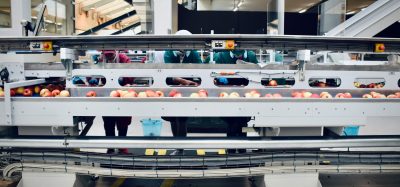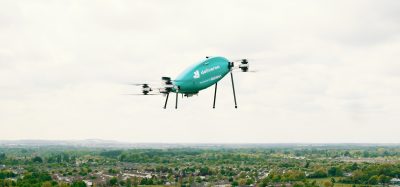Major boost for food and drink industry
- Like
- Digg
- Del
- Tumblr
- VKontakte
- Buffer
- Love This
- Odnoklassniki
- Meneame
- Blogger
- Amazon
- Yahoo Mail
- Gmail
- AOL
- Newsvine
- HackerNews
- Evernote
- MySpace
- Mail.ru
- Viadeo
- Line
- Comments
- Yummly
- SMS
- Viber
- Telegram
- Subscribe
- Skype
- Facebook Messenger
- Kakao
- LiveJournal
- Yammer
- Edgar
- Fintel
- Mix
- Instapaper
- Copy Link
Posted: 18 August 2008 | Martin Lowe, Managing Director, CenFRA Ltd | No comments yet
Figures suggest that since the start of the 21st century, there has been a three-fold increase in the use of automation and robots in the global food sector. However, many food and beverage producers in the UK appear reluctant to adopt this technological advance.
Figures suggest that since the start of the 21st century, there has been a three-fold increase in the use of automation and robots in the global food sector. However, many food and beverage producers in the UK appear reluctant to adopt this technological advance.
Figures suggest that since the start of the 21st century, there has been a three-fold increase in the use of automation and robots in the global food sector. However, many food and beverage producers in the UK appear reluctant to adopt this technological advance.
The UK food industry, unlike its manufacturing counterparts, has so far lagged behind its global competitors in embracing robotic technology, with fears of cost, lack of flexibility and perceived maintenance issues perhaps all playing a part in persuading many companies to stick with traditional methods of production.
The opening of CenFRA Ltd’s new Centre for Food Robotics and Automation in May hopes to counter the lack of investment in robotics and encourage the industry to rethink how the adoption of innovative automation can improve product quality, efficiency, profitability and working conditions on the shop floor.
In fairness to the industry, access to independent advice and guidance on robotics has been in short supply, and has probably contributed to the dilemma over when to automate, but it is now hoped that the new state-of-the-art centre in Doncaster, the first of its kind in Europe, will address that situation and fuel the drive towards automation.
Chairman of CenFRA Ltd, Michael Taylor said: “A vital role of CenFRA is to remove the misconceptions and perceived obstacles about automation to ensure the on-going success of the food and beverage industries.”
The well-being and viability of the UK food industry is a vital ingredient in the health of the whole economy, for example in Yorkshire and Humber alone, more than 1,100 food and drinks producers are generating GBP 2,631 million in revenues and employing over 60,000 people.
It is little wonder that Yorkshire could be seen as a barometer to how the country’s food industry is faring as a whole, and as such prompted the regional authorities to invest in CenFRA to help companies, both regionally and nationally, stay competitive, especially during the current challenging economic times.
Regional Development Agency Yorkshire Forward is mindful of the impact the twin challenges of the credit crunch and rising prices have on the region’s manufacturing base, and it is confident its support of such a major player as the food industry in the shape of the Robotic and Automation Centre is a sound investment.
Yorkshire Forward’s Executive Director of Business, Simon Hill, said: “This is truly innovative and will do wonders for the industry in Yorkshire and Humber along with the UK. When all the talk is of recession, inflation and the credit crunch, it’s great to say something positive about the prospects of an industry, and this is definitely positive.”
Across the North West and North East, a similar picture of lack of investment in robotics and automation emerges, which is why Yorkshire Forward (GBP 1.95 million) and the Northern Way (GBP 300,000) – an amalgamation of the three northern based Regional Development Agencies – have invested in CenFRA.
CenFRA aims to facilitate increased efficiency and profitability in the food and drink industries by advising on and encouraging the use of robotics and automation.
The company provides nationwide automation technology audits within food and drink processing plants in order to identify where robotic installations can improve productivity and competitiveness.
As part of its overall package and facilities, CenFRA’s service also includes organising and hosting seminars, training days, best practice updates and information on the latest technologies, production processes and methods related to automation readily applicable to the food and drink manufacturing sector. At its Doncaster location, the company has a permanent showcase facility demonstrating a variety of robotic and automated equipment provided by a number of UK suppliers and specifically designed to perform food-related tasks.
The ‘not for profit’ company will also provide practical, independent advice on how automation can meet the needs of individual businesses.
CenFRA has available its own engineers together with academics at Salford and Sheffield Hallam Universities and other specialist engineering centres to work alongside these companies to develop fully-bespoke solutions. It will also direct research and development on various generic food and drink processing issues and their potential for automation.
Mike Wilson, the chairman of the British Automation and Robot Association (BARA), believes the many services offered by CenFRA can help eliminate the perceptions which can restrain UK investment in robotics.
He said: “Robotics and automation reduce operating and capital costs. They improve product quality and consistency, whilst reducing rejects by 75 per cent and improving the quality of employees’ work. Robotics’ boost production output and manufacturing flexibility, reducing material waste and increasing yield.”
This is borne out by Greggs Bakery, one of the UK’s leading food companies, whose factory at Balliol Park in Newcastle-upon-Tyne is already regarded as one of the most modern and highly automated bakery facilities in Europe. As part of the company’s vision to be Europe’s finest, most highly profitable bakery, Greggs received a visit from CenFRA to discuss improving its efficiency and picking rates. As the use of robotics has been so successful in packing products onto trays and then stacking them, the company’s expansion plans now include extending automation to the second and third lines.
Automation introduced on a line can also complement methods of production, which are the selling points for many in the food and drink sector, as well as improve working conditions for employees.
For instance, the Black Sheep Brewery at Wensleydale, Masham in North Yorkshire, is a fine example of how modern manufacturing techniques can be successfully blended with traditional processing methods. The brewery, renowned for producing its popular beers in a time-honoured fashion, embraced robotics for the moving of the vast numbers of heavy casks involved in its operation. Black Sheep’s whole line is now automated from the casks coming in at the start of the filling process to coming off at the end, which means the brewery’s staff only has to oversee the operation rather than physically lift the casks on and off the conveyor system.
Because of this enhanced automation, the staff are no longer exposed to repetitive strain injuries and back problems which can frequently arise from regular manual handling.
To encourage more companies to follow the leads of Greggs Bakery and the Black Sheep Brewery, food and drinks manufacturers in the North East, North West and Yorkshire and the Humber regions qualify for free automation audits from CenFRA, whilst businesses from other regions within the UK can access the same services and facilities for a small charge.
More than 50 companies throughout the North of England have already enjoyed the benefits of a technology audit. Each audit results in a detailed customised report highlighting opportunities where simple, currently available low-cost automation can be introduced.
There are already a number of existing installations where the packing of a variety of bottle sizes into different formats of multi-pack clusters, cartons and trays takes place. One recent robotic installation, for example, places cuplet drinks into outer boxes, increasing line speed by 25 per cent, whilst robots automated the assembling of 56 different product and pack size combinations onto pallets.
BARA’s Mike Wilson added: “Robotic palletising is well established but there is very low robot penetration in picking and packing. There are also thousands of different sub-applications where flexibility is paramount and that is a key success factor, along with risk management and robotics’ ease of use.”
CenFRA’s Michael Taylor said: “Robots and automation can be applied to more advanced applications such as inserting liquid ingredients, as well as particulate products and mixing complicated recipes, for example. Robotic handling often has an advantage over manual and semi-automated systems and also protects staff from hazards at a time of rising litigation.”
He continued: “As input prices increase, we are committed to ensuring that the industry is well-informed and right at the heart of the rush to innovate. We are confident this trend to automate will accelerate.
With lower labour costs elsewhere in the world, we need to provide a facility to tackle a highly competitive market. Yorkshire Forward’s support to the food and drinks industry is a serious priority, demonstrated through the provision of the financial support behind CenFRA. Our aim is to become a fully sustainable business within the next few years.”
With systems starting from less than GBP 20,000, CenFRA believes it can help businesses to quickly identify and quantify the significant cost savings automation can so readily provide.
Background Information
CenFRA Ltd (Centre for Food Robotics and Automation) is a brand new initiative whose vision is “to support the future sustainability of the UK Food and Drink industry by providing independent, affordable automation solutions”.
Funded principally by Yorkshire Forward but with additional support from Northern Way (an amalgamation of the three Northern–based Regional Development Agencies) the Centre is in partnership with a consortium of the country’s leading independent robotic and automation facilities including the University of Salford.
Driven by food industry professionals, CenFRA is committed to improving the competitiveness, profitability and sustainability of UK Food and Drink companies by introducing them to robotics and automation through audits, identification of opportunities and practical independent advice on equipment and suitability.
The CenFRA organisation is Europe’s first Centre for Food Robotics and Automation and is located in the newly created Crompton Business Park at Doncaster. It is supported by a dedicated team of professional engineers, researchers and technologists drawn from a wide variety of academic and specialist engineering centres. All are highly experienced in the field of mechanised food assembly and automation technology.









